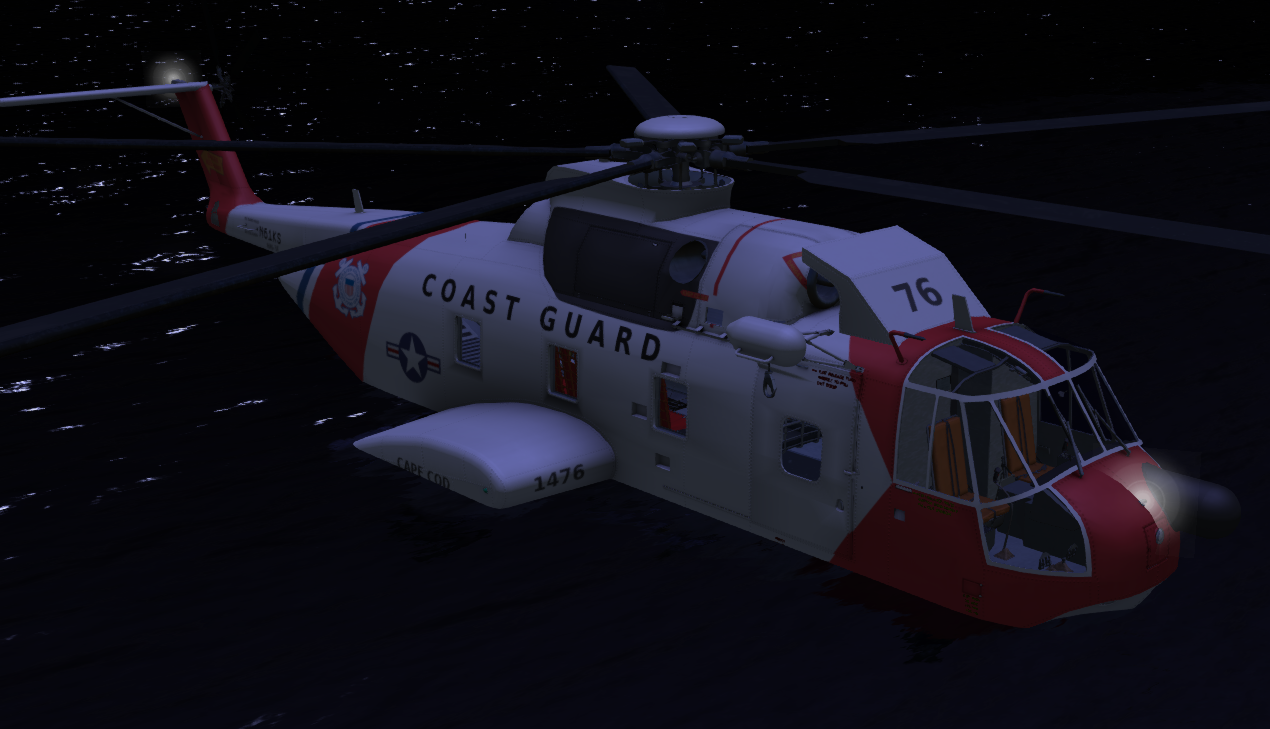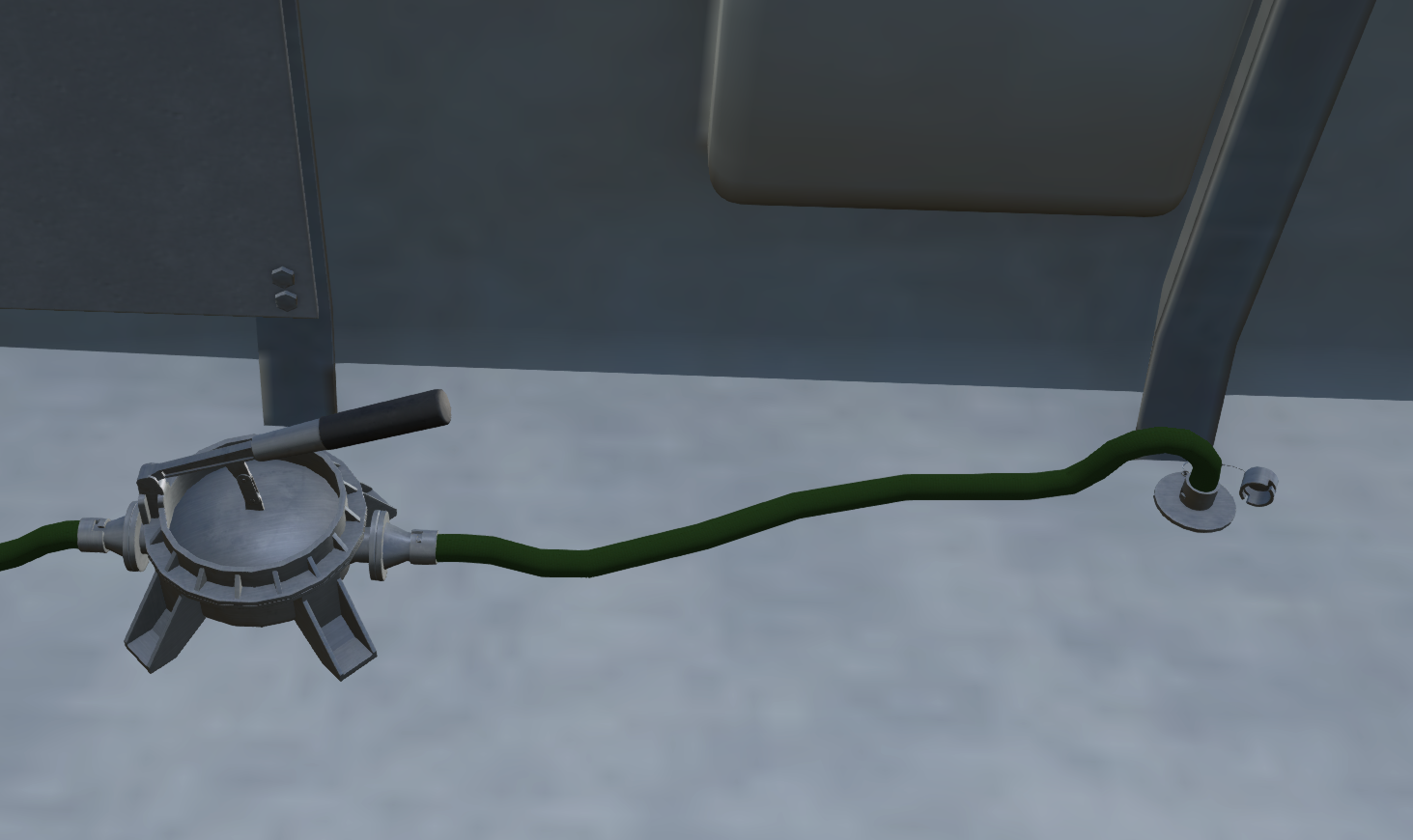Difference between revisions of "S-61R Pelican/Water Operations"
(→Anchor) |
|||
| Line 26: | Line 26: | ||
While anchored, it is recommended that the anchor lights (see <xr id='fig:anchor-lights'/>) be turned on. The anchor light switch is located on the overhead panel. The anchor light is powered by the hot battery bus and does not require the BATTERY switch to be ON. | While anchored, it is recommended that the anchor lights (see <xr id='fig:anchor-lights'/>) be turned on. The anchor light switch is located on the overhead panel. The anchor light is powered by the hot battery bus and does not require the BATTERY switch to be ON. | ||
| + | |||
| + | [[File:S61-bilge-box.png|thumb|left| | ||
| + | <figure id="fig:bilge-box><caption>Bilge Pump Box</caption></figure> | ||
| + | ]] | ||
| + | |||
| + | [[File:S61-bilge-pump.png|thumb|right| | ||
| + | <figure id="fig:bilge-pump><caption>Deployed Bilge Pump</caption></figure> | ||
| + | ]] | ||
=== Bilge Pump === | === Bilge Pump === | ||
| + | |||
While on water, the flotation compartments will slowly fill with water. If the compartments are not emptied, the weight of the water will cause serious performance issues during flight and on on-water operations. A bilge pump is provided with the helicopter to expel any excess water that may have accumulated. | While on water, the flotation compartments will slowly fill with water. If the compartments are not emptied, the weight of the water will cause serious performance issues during flight and on on-water operations. A bilge pump is provided with the helicopter to expel any excess water that may have accumulated. | ||
Revision as of 17:58, 21 June 2020
SECTION 10. WATER OPERATIONS
1 Water Taxi
The S-61R is constructed with a water-tight hull with 4 flotation compartments to allow it to land and operate on water. Water taxi is performed similarly to ground taxi: apply a small amount of collective to produce thrust, then apply forward cyclic to move forward. Use the anti-torque pedals to steer on water. The S-61R includes an internal wind system that affects its movement on water. By default the wind direction is random and changes direction on average about every 10 min (with some variation). Use the following commands to control the wind model:
| Command | Description |
|---|---|
| wind dir [speed] | Set wind to the compass direction dir. An optional speed parameter speed may be specified to set wind speed to between 0 and 3 m/s |
| wind random | Set wind direction to random. |
2 Anchor
An anchor can be deployed to prevent the aircraft from drifting while on water. The anchor is located in a storage area next to the main cabin door. Click on the anchor (or anchor storage area) to deploy or stow the anchor. The main door must be open, and the aircraft must be on water to deploy the anchor. You can also use the chat commands "anchor" and "unanchor" to deploy or stow the anchor.
When the aircraft is anchored and remains physical, the aircraft will react to the current wind. Typically this will cause the aircraft to slowly align into the wind in the direction of the anchor.
2.1 Anchor Lights
While anchored, it is recommended that the anchor lights (see Figure 1) be turned on. The anchor light switch is located on the overhead panel. The anchor light is powered by the hot battery bus and does not require the BATTERY switch to be ON.
3 Bilge Pump
While on water, the flotation compartments will slowly fill with water. If the compartments are not emptied, the weight of the water will cause serious performance issues during flight and on on-water operations. A bilge pump is provided with the helicopter to expel any excess water that may have accumulated.

